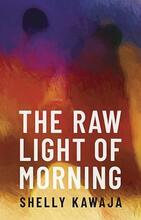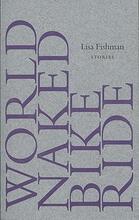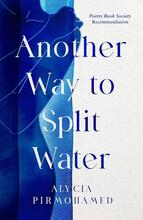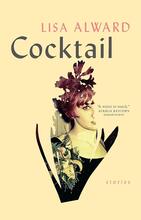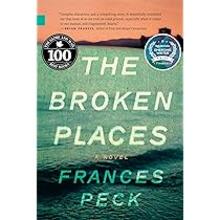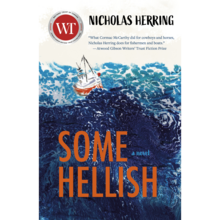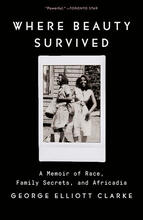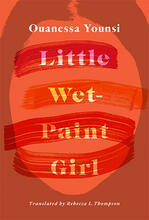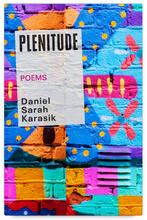Posted on January 11, 2024
In A knife so sharp its edge cannot be seen, Erin Noteboom merges her background as a particle physicist with poetry. She excavates intangible and indescribable moments from scientific experiments to blur lines between worlds that otherwise seem separate.
Posted on December 19, 2023
The Raw Light of Morning, Shelly Kawaja’s debut novel and winner of the $12,500 BMO Winterset Award in 2022 for outstanding literary work by a Newfoundlander or Labradorian, is at the same time a compelling story of domestic violence, poverty, and trauma, and a 1990s western Newfoundland coming-of-age character study of a young woman of remarkable resilience. This is Laurel’s story, and she is 14 in the opening scene, and forced to intervene to protect her mother from life-threatening violence.
Posted on December 19, 2023
Who can resist the title of this debut short fiction collection? Like cyclists in the eponymous event — a protest against fossil fuel consumption, among other things — Lisa Fishman’s 40 pieces, a collage of micro, flash fiction and narratives of greater length, flout convention. Vanity of vanities, the Pushcart Prize-nominated poet seems to say of the standard short story and its clothing/trappings.
Posted on December 19, 2023
I am woman after woman after spooling
woman, ensorcelled by water that twins and fissures
and halves into world.
Posted on December 19, 2023
The epigraph to Lisa Alward’s new story collection, Cocktail, is an epiphanic moment from Virginia Woolf ‘s To the Lighthouse, in which the artist Lily Briscoe strives to resurrect and memorialize her dead friend through painting her portrait. Moved to uncharacteristic emotion by a sudden realization of the brevity of life, Lily laments, “Was there no safety? No learning by heart of the ways of the world?
Posted on October 26, 2023
The natural disaster has been a trope in fiction (and movies) for decades. Usually what happens is that a group of strangers becomes isolated by an unexpected and massively destructive event. The ensuing drama chronicles the efforts of the unlucky individuals to cope with the challenges, dangers and deprivations they suddenly find themselves facing.
Posted on September 22, 2023
In Nicholas Herring’s first novel, his self-named protagonist, Herring, makes the following socioeconomic comment about lobsters: “You know, it wasn’t too long ago, you couldn’t get anybody to buy lobster. People used it as fertilizer in their gardens. Farmers would put it out on their rows. Eighty per cent of the market nowadays is cruise ships and casinos. The way I see it, lobster is just something people eat to distract them from the fact that they’re pissing their wages away” (260).
Posted on July 5, 2023
George Elliott Clarke has carved a name for himself in Canada’s poetry landscape as a talented modernist paradoxically charged with verbosity. The richness of his language, the energy and directness of his address, and his exploration of “big” themes (racism, love, poverty) have garnered him understandable praise. In his best work, the focus of language and theme creates an undeniable force.
Posted on July 5, 2023
“My parents peeled me like a fig. I was a different fruit each day.” Is the self the me, an object created, or the I, with self-knowledge and even agency over its own definition? In Métissée, ably rendered in English by translator and scholar Rebecca L. Thompson as Little Wet-Paint Girl, Québec poet Ouanessa Younsi brings multiple possible selves together in a collision complicated by mixed cultural heritage.
Posted on July 5, 2023
Daniel Sarah Karasik’s Plenitude is not only a cogent articulation of trans experience, identity and rights, but an incisive systemic reading — often a socialist or Marxist reading — with several side trips to consider Jewishness. By situating gender, queerness and identity within the larger context they bring a broader analysis of how culture can subsume and often commodify the personal. And because this is poetry, we’re aware that the tropes of lyric positionality (including the lyric “I”) are also implicated.
Pages

